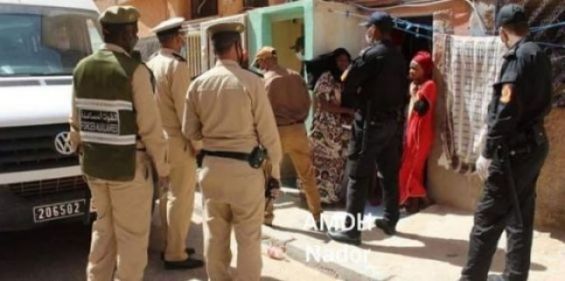On Sunday, the Health Ministry announced that 37 new confirmed coronavirus cases were recorded in the Laayoune-Sakia El Hamra region. Most of the new infections are located in Tarfaya, a coastal town in southwestern Morocco. Almost all of the new cases have been recorded among migrants, mainly those housed in three places made available for them by the authorities during the health crisis, well-informed sources told Yabiladi.
Three days before identifying these cases, local authorities in the coastal town raided migrant communities in the region. These operations were meant to trace the contacts of the possible positive cases, shortly after the discovery of 14 infections among migrants who sailed from the town to the Canary Islands.
«As Morocco has tightened border control as part of its attempts to avoid the spread of the coronavirus, only few migrants were able to leave Nador and Tangier. The southern coasts have become the main route for migrants. Before boarding boats, these migrants are often housed in unsanitary conditions that can help spread the virus», Omar Naji, vice-president of the Moroccan Association for Human Rights (AMDH) in Nador, told Yabiladi.
Accommodation conditions making it difficult to observe social distancing
The activist, who has been in contact with these migrants, confirmed the news about the situation in Tarfaya. «The arrests have been carried since Friday. The local authorities have informed the arrestees that these were not police arrests but interventions for screenings», he added. But these people would have been kept in «illegal confinement spaces», Omar Naji regretted. «They have been transferred to places, including a house in Tarfaya, one in Laayoune and one in Tah», he said.
Another source told Yabiladi that the 37 nationals were preparing to set sail when they were arrested on June 16. They were «placed in confinement in a home for migrants». «Except that the aforementioned home shelters 260 other Sub-Saharans, who are likely to be positive» for coronavirus, the same source stressed. This explains why «all members of the local authorities who carried out the arrests have undergone coronavirus tests and are impatiently awaiting the results».
But well before these raids, «the arrests began already on March 15, either to prevent these migrants from leaving the country or to house them as part of preventive measures set up to avoid the spread of the pandemic», Omar Naji said.
«The sanitary measures must be applied, but it has been more than three months that these nationals are locked up there, in disastrous conditions where social distancing is impossible to practice, not to mention the absence of masks and hydroalcoholic gels. This is not how we can fight the pandemic».
Omar Naji fears that the focus of contagion will widen «mainly due to these retention methods, which in themselves represent a danger to people, especially during a pandemic». In this sense, he recalls that one of these spaces has already seen a number of escaping attempts.





 chargement...
chargement...













